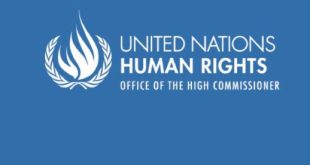This year, a cabal of generals evidently believed it could secure the White House for Mitt Romney by staging the Benghazi incident and using it as the signal for a cold coup under cover of elections — probably including computer-generated election fraud — to bring down Obama. They guessed wrong.
Politicians sometimes purge generals. When the French Secret Army Organization (OAS) staged a putsch in Algiers in April 1961 to prevent the independence of Algeria, President de Gaulle had to round up and jail a number of generals and other officers. The Obama administration and its establishment controllers appear to be ousting a number of intelligence and military officials who took part in illegal operations to replace Obama with Romney. These sackings are being presented to the public under the guise of soap opera sexual infractions or expense account padding, in the hope of hiding some real mechanisms of power from the popular gaze. The outgoing US military cabal favors the extension of colonial wars, like those in Iraq and Afghanistan, as well as an attack on Iran. Good riddance.
General Petraeus: Neocon Who Sought War with Iran
The most spectacular example is the fall of General David Petraeus, the CIA director, and one of the leading US advocates of an early war with Iran. The heads of several other rogue figures are rolling. The result is one of those rare moments when parts of the rogue network or invisible government can be observed by those who have enough knowledge to understand what they are seeing. But the firings have only scratched the surface.
The Romney backers were made up of neocons, Bush holdovers, and members of the Mormon Mafia in the intelligence community — a relatively narrow base. The Obama supporters were the Brzezinski-Nye soft power group and military opposed to the Iran war. The neocons and reactionary Mormons wanted to restore aggressive war and wholesale bombing as the preferred option for US foreign policy. Although they love drones and assassinations, they want to keep significant US conventional forces in the Middle East.
The pro-Obama group wants to avoid large conventional commitments. They want to rely on cyber-warfare, drones, assassinations, bombing, raids by special forces, and economic warfare in the form of trade sanctions and technology embargoes. When they want to destroy a country like Syria, they do not favor direct US invasion or bombing, but rather seek to use proxies like Turkey and the al-Qaeda patsy network to get the double benefit of weakening both ally and enemy. Above all, they love color revolutions and soft-power subversion.
Benghazi, September 11: CIA assets kill US envoy while CIA team is ordered to stand down and other CIA assets fail to intervene
The Benghazi consulate was prevalently a CIA post, with significant military capabilities. Ambassador Stevens had strong CIA connections and served as a liaison with the al-Qaeda-linked terrorists of the Benghazi-Derna-Tobruk corridor, whom the CIA is using for the attack on Syria. His last conversation with a Turkish diplomat was evidently a discussion on this topic.
Stevens and others thought they had nothing to fear because their relations with the Islamist fighters were so cordial. The attack that killed Stevens was carried out by forces under the control of Sufiyan Qumu (also Kumu or Gumu), who had been held in Guantanamo for several years and released as a CIA asset for the overthrow of Gaddafi. A significant group of CIA paramilitaries stationed nearby was ordered to stand down by the CIA command structure.
Another CIA asset, the February 17 Martyrs Brigade, which had in the summer of 2011 assassinated General Younes in order to help the CIA operative General Hifter to take control of the rebel army, had contracted to provide additional security, but also did not intervene. General Petraeus went to the movies that night. On September 14, Petraeus told the House Intelligence committee that the Benghazi incident had been spontaneous, a demonstration gone violent.
This is the line which Susan Rice mouthed on television in mid-September. (She should be fired for other reasons.) The Obama administration was in any case eager to hide the fact that it had turned Libya over to al-Qaeda. The goal of Benghazi was an early October surprise to Carterize Obama, and the CIA was commanded by Petraeus.
Petraeus arrived at the CIA on September 6, 2011. Within a month, a new provocation was launched against Iran in the form of absurd accusations that members of the Quds Force were plotting to assassinate the Saudi ambassador to Washington, DC. Intelligence community conduit David Ignatius wrote at the time that a big reason the implausible plot story gained credibility was the “fact the CIA [meaning Petraeus] and other intelligence agencies gathered information corroborating the informants’ juicy allegations” implicating the Quds Force and the Iranian Revolutionary Guards Corps.
In reality, the patsies involved came from the Drug Enforcement Administration and/or the Mujaheddin e-Khalq (MEK), an anti-Iranian terrorist force maintained by the US in Iraq. The MEK has now been rewarded by being removed from the State Department’s list of terrorist organizations. (David Ignatius, “Those Keystone Iranians: Why Such a Crude at Assassination Plot?, Washington Post, October 12, 2011) The goal of the operation was to abort possible diplomatic solutions to tensions between NATO and Iran.
In Washington, the neocon Petraeus was always considered as General Betray-US, Bush’s warlord and the key front man for the Iraq surge. He was the darling of the civilian chickenhawk neocons, who saw in him a presidential vehicle to return to power after the debacles in Afghanistan and Iraq. Petraeus’ neocon sherpas were Frederick Kagan and Max Boot, who also helped him to refurbish his image concerning Israel. Obama was always afraid that Petraeus would run for president, and when Romney took the nomination, feared that Petraeus might be a candidate for vice president.
Like General George Marshall on the evening of December 6, 1941 — who stayed conveniently out of the loop under various pretexts because he wanted the Pearl Harbor attack to occur as a means of damaging President Roosevelt — Petraeus was at the movies during the Benghazi attack, attending a private screening at the Canadian Embassy of the movie Argo with Ben Afflek, which deals with a 1979 covert CIA operation in Tehran.
The Night of the Long Knives
The hatred of key members of the US officer corps for Obama was illustrated through the comments of Petraeus’ friend, the warmonger General Stanley McChrystal, who was ousted in June 2010. In addition to Petraeus, the following officers are also either sacked or the object of scandals or investigations:
Marine General John R. Allen is in trouble. Currently the commander of US forces in Afghanistan, Allen had been slated to take over from Admiral Stavridis as NATO Supreme Commander, but Obama has now put this nomination on hold. Allen is accused of having an improper relationship with the Tampa, Florida hostess and socialite Jill Kelley, originally of the Lebanese Khawam family. Mrs. Kelley had insinuated herself into the social circle of generals at McDill Air Force Base, the location of the US Central command. Allen and Petraeus both wrote letters to a judge supporting Kelley’s twin sister in a child custody fight. According to some accounts, Allen sent either 30,000 pages or 30,000 e-mails to Kelly over a few years. Allen denies wrongdoing, but the handwriting is on the wall.
General Carter Ham, commander of US Africom, whose area of responsibility includes Libya, manifestly failed to send forces to stop the attack on the Benghazi consulate and CIA post. Panetta announced on October 18 that Ham was being replaced. The official line is that Ham decided to retire of his own volition. There were many days of confusion in Washington about his leaving.
Admiral James G. Stavridis, the outgoing NATO Supreme Commander, has been officially reprimanded by Navy Secretary Ray Mabus for lavish spending on his personal lifestyle, including a junket to a wine dinner in France. He will soon leave his post.
General William E. “Kip” Ward, who commanded US Africom from October 2007 to March 2011, presided over the preparation and launching of the attack on Libya. On the surface, Ward is accused of spending several hundred thousand dollars of government money and resources on family members, luxury junkets, and flights. He had been under investigation for a year and a half, but it was announced on November 13 that he would be fined $82,000 and demoted from full general to lieutenant general, reducing his pension.
Lieutenant General Patrick J. O’Reilly, the Director of the Pentagon’s Missile Defense Agency, has also been reprimanded by the Defense Department’s Inspector General for intimidating and humiliating subordinates, thus creating a work environment characterized by one subordinate as “management by blowtorch and pliers.” (Washington Post, November 15, 2012) O’Reilly is being ousted from his post before the conclusion of the usual four year tenure, and demoted to major general. His departure was deplored on the floor of Congress by Representative Mo Brooks of Alabama, a reactionary and racist Republican.
Rear Admiral Chuck Gaouette was the commander of the USS Stennis carrier battle group, currently stationed in the Arabian Sea, near Iran and other possible targets for aggression and/or Gulf of Tonkin provocations. Gaouette is currently being investigated for “inappropriate leadership judgment” while on station in the Middle East.
Brigadier General Jeffrey Sinclair, second in command of the 82nd Airborne Division stationed at Fort Bragg, North Carolina, and a key man for Afghanistan logistics, is accused of raping and having an adulterous affair with a female captain he had gotten transferred to his command. The prosecution has already sabotaged its own case, raising the chances that the case will be thrown out of court, while charges of pornography and alcoholism on duty may have been invented, pointing once again to a political motive. Press accounts feature Sinclair’s assertion, “I’m a general. I’ll do whatever the [expletive] I want.”
Commander Joseph E. Darlak, commanding officer of the frigate USS Vandegrifft and two other senior officers having been removed after a drunken orgy during a visit to the port of Vladivostok, Russia. Details are sketchy, but the goal of the escapade might well have been a provocation against the Putin government. According to one account, over 20 top naval officers have been fired during 2012.
Christopher E. Kubasik was fired as president and Chief Operating Officer of Lockheed Martin Corp., the top US defense contractor in 2008 and 2009. Lockheed Chairman Rob Stevens had allegedly requested an ethics investigation, which revealed a sexual affair with a subordinate. Lockheed’s electronic warfare and cyber warfare capabilities are formidable.
Naturally, it is impossible to know at this time how many of these cases are actually based on the reasons stated, and how many actually involve complicity with operations targeting the White House.
On the Thursday after the presidential vote, Defense Secretary Panetta ordered Joint Chiefs of Staff Chairman General Martin Dempsey, an ally of Obama, to conduct a wide-ranging review of misconduct by senior military officers. The general public is supposed to think that this review will be mainly concerned with wrongdoing such as adultery, sexual harassment, embezzlement, and the like. But the reality is most likely a purge of officers associated with the pro-Romney coup machinations of September-October 2012.
With all these figures removed, it is likely to be more difficult for Israel’s Netanyahu to launch his war against Iran in the way that had been planned. He has therefore fallen back on the option of starting a smaller war in Gaza as a means of stabilizing the US-UK-Israel war party while other options are sought. The rogue network, now a wounded beast, must be counted doubly dangerous.
The Mata Haris
Mata Hari’s method was to seduce French generals and send their secrets to Berlin. The cover story for Petraeus’ ouster involves his affair with Paula Broadwell, who fraternized extensively with the general in Afghanistan while she was preparing a fawning campaign biography of the general entitledAll In: The Education of General David Petraeus — not to be confused with Flaubert’s L’Education sentimentale. Broadwell is a lieutenant colonel of military intelligence with a background at the Joint Special Operations Command and, according to some accounts, a knowledge of Arabic.
She says she has a top secret security clearance “and then some.” She has hobnobbed at the Obama White House and with Karl Rove. By all indications, and whether she knew it or not, she was deployed to embroil Petraeus with a view to bringing him down, and she succeeded. When the dalliance became known to the FBI and thence leaked to GOP Congressmen Reichert and Cantor, Petraeus was told he had to resign by intelligence czar James Clapper, a creature of Obama.
Jill Kelley and her twin sister Natalie Khawam are also redolent of the intelligence community. Their focus was evidently to lead both Petraeus and Allen onto the flypaper.
The Rogue Network Down but Not Out
The US rogue network has been exceptionally active since the attacks of September 11, 2001 in which the rogues were heavily implicated. In the spring of 2007, Vice President Dick Cheney argued unsuccessfully for an attack on Syria on behalf of the rogue network whose spokesman he was. In August-September 2007, a B-52 bomber loaded with six nuclear cruise missiles was in effect hijacked by the rogue network — taken out of legal US command — and flown from North Dakota to Louisiana, presumably on its way to a bombing mission in the Middle East. The B-52 was stopped at Barksdale AFB in Louisiana. Months later, Defense Secretary Robert Gates fired Secretary of the Air Force Michael W. Wynne and Air Force Chief of Staff T. Michael Moseley for poor management of nuclear weapons. A special board under James R. Schlesinger studied nuclear safety, and doubtless also whom to fire. For knowledgeable observers, a window into the rogue network had been opened.
On Christmas Day, 2009, the Nigerian underwear bomber Mutallab attempted to blow up a passenger airliner in the skies over Detroit. During the first week of January, Richard Wolffe of MSNBC reported that the Obama White House had concluded that certain federal officials had acted to prevent Mutallab’s operation from being shut down because they wanted to damage the Obama administration. Still later, Undersecretary of State Patrick Kennedy told a House committee that the State Department had wanted to revoke Mutallab’s visa, but had been prevented from doing so by another (unnamed) federal agency, under the pretext that the Nigerian suicide bomber was being tailed. The Obama administration cravenly backed off further public investigation of this incident, allowing the rogue network to strike again in Benghazi. (All these events are described on Tarpley.net.)
ORCA: Why the Pro-Romney Vote Fraud Did Not Materialize
The purge of so many Romney supporters from the intelligence community and from the military may explain why the expected computer-generated Republican election fraud failed to materialize in the expected dimensions in so many states. Tagg Romney and his associates, many of them investors in Bain Capital, had notoriously bought control of voting machines in almost a score of states, including Ohio. What frustrated the design to steal the election? Perhaps this operation was disrupted and aborted by investigations conveniently timed and targeting some of the main pro-Romney intelligence and military figures in the rogue network.
The answer may also be related to the apparent failure of ORCA, Romney’s data-mining and data management operation, which was supposed to help GOP volunteers get out the vote, but which may have possessed additional and more sinister dimensions. But, as David Gewirtz of ZDNet wrote on November 13, ORCA “got harpooned. ORCA beached. It flopped. It died in the sun. It failed oh-so-bad.” And with it failed the hope of Romney’s backers that they could seize the White House.
The current scandals are extraordinary because they cast light on the rogue network or invisible government of the United States, a topic which is usually strictly taboo for the mass media. For this reason, David Ignatius of the Washington Post, considered close to the intelligence community, is already a warning that it is time to call a halt. Sunlight, Ignatius warns, can be “toxic under the wrong circumstances.”
“For a reminder of why it’s dangerous, take a look at The Crucible and the Lessons of History,” Ignatius concludes. (David Ignatius, “A Modern Witch Hunt,” Washington Post, November 18, 2012) In other words, time to stop the purges before they threaten to engulf the entire rogue network and thus the entire establishment. Patriotic citizens and those who want peace, by contrast, must hope that the revelations go on and on.
WT/HSN
Post Disclaimer | Support Us
Support Us
The sailanmuslim.com web site entirely supported by individual donors and well wishers. If you regularly visit this site and wish to show your appreciation, or if you wish to see further development of sailanmuslim.com, please donate us
IMPORTANT : All content hosted on sailanmuslim.com is solely for non-commercial purposes and with the permission of original copyright holders. Any other use of the hosted content, such as for financial gain, requires express approval from the copyright owners.
 Sri lanka Muslims Web Portal Sri Lanka Muslims News Center
Sri lanka Muslims Web Portal Sri Lanka Muslims News Center

 Donate
Donate


